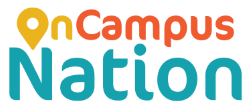
Influencers Vs Brand Ambassadors Explained
Influencers Vs Brand Ambassadors Explained
Choosing between influencers vs brand ambassadors can be confusing. Many companies are unsure which option will better promote their products. Here’s a fact to consider: Influencers and brand ambassadors serve different purposes in marketing strategies, aiming to attract customers in unique ways.
Our blog post sheds light on the key differences between influencers and brand ambassadors. We explain how each plays a distinct role in promoting brands and why understanding these roles is essential for effective marketing.
Expect to learn tips on choosing the right strategy for your brand and maximizing your return on investment (ROI). Ready to discover more? Keep reading!
Key Takeaways
- Influencers partner with multiple brands for short – term campaigns, using their social media skills to quickly spread the word about products. They reach many people fast and can work with different types of companies, even competitors.
- Brand ambassadors focus on one company for a long time, building trust and community by sharing their deep knowledge and love for the brand’s values. This creates lasting relationships between customers and the brand.
- Using influencers can help brands reach new audiences through diverse social media followers, making it easier to tap into unfamiliar markets and increase visibility.
- Working with niche influencers builds trust because they have specific expertise in areas related to the product. Their recommendations feel genuine, not like an ad, which makes people more likely to believe in what they promote.
- Successful brand ambassador programs involve creating communities around the brand where loyal fans share advice and experiences. Examples include Lululemon’s fitness professionals hosting classes or Sephora’s superfans offering makeup tips online.
Understanding Influencer Marketing vs Brand Ambassadors
Exploring the realm of influencer marketing versus brand ambassadors unveils distinct pathways for brands to engage with audiences. Each approach leverages unique methods and goals, setting the stage for tailored promotional activities that resonate differently within the digital marketing landscape.
| Feature | Influencer Marketing | Brand Ambassadors |
| Definition | Individuals who partner with multiple brands to create sponsored content for short-term campaigns. | Individuals dedicated to representing a single brand over an extended period. |
| Engagement with Brands | May work with competing companies, endorsing a wide range of products and services. | Exclusively commit to one company, aligning closely with its values and mission. |
| Content Creation | Often craft content for specific marketing campaigns, focusing on immediate impact. | Focus on creating content that promotes long-term engagement and brand loyalty. |
| Objective | Aim to influence specific markets or industries through social media and digital marketing techniques for short-term goals. | Build a solid foundation of trust and loyalty between consumers and the brand, focusing on long-term advocacy. |
| Campaign Duration | Participate in short-term, campaign-based collaborations designed to generate quick buzz. | Involved in sustained marketing efforts, ensuring consistent brand representation over time. |
| Community Engagement | Utilize their reach and influence for spontaneous promotion across diverse groups. | Cultivate deep connections within communities, often through personal testimonies and continuous engagement. |
| Flexibility | High flexibility in adapting to different promotional partnerships and endorsements. | Focus on a single brand, limiting flexibility but enhancing depth of brand knowledge and loyalty. |
| Impact | Generate immediate sales boosts and awareness through targeted campaigns. | Contribute to long-term brand loyalty and community building. |
What Distinguishes Influencers vs Brand Ambassadors
Influencers engage with multiple brands, crafting sponsored content for short-term marketing campaigns. Their strength lies in their ability to sway specific markets or industries through social media influence and digital marketing techniques.
Unlike brand ambassadors, influencers may partner with competing companies, providing endorsements that span a wide range of products and services. This flexibility allows them to adapt quickly to different promotional partnerships, making influencer outreach a dynamic tool in affiliate marketing.
Brand ambassadors, on the other hand, dedicate themselves to representing a single company over an extended period. They build promotional relationships based on trust and deep familiarity with the brand’s values and mission.
Unlike influencers who thrive on campaign-based collaborations, brand ambassadors focus on cultivating long-term community engagement and expertise around the brand they endorse. Their exclusive commitment ensures consistent brand representation across all platforms, reinforcing the company’s presence through sustained marketing collaborations.
How Their Roles and Objectives Differ in Marketing Campaigns
Brand ambassadors embody a brand over extended periods, fostering deep connections and loyalty within communities. They focus on representing the ethos and values of a single company through various forms of engagement, such as social media presence, event participation, and personal testimonies.
Their main objective is to build a solid foundation of trust between consumers and the brand they represent, making them crucial for long-term advocacy and sponsorship.
On the flip side, influencers operate on a campaign basis with multiple brands across different sectors. They use their extensive reach and influence to introduce products or services to their audience in a more spontaneous yet impactful manner.
The primary goal here revolves around promotion and endorsement during short-lived but powerful marketing spikes designed to generate buzz quickly. Influencers excel at spreading the word rapidly across diverse groups, leveraging endorsement opportunities that target immediate sales boosts rather than cultivating long-standing relationships.
The Benefits of Influencer Marketing

Influencer marketing unlocks new paths to connect with a broader audience, tapping into the followers of social media mavens. It leverages authentic voices to elevate your brand’s message, enhancing its credibility and appeal among potential customers.
Increased Variety and Reach
Collaborating with influencers opens up a wide range of opportunities for brands to diversify their marketing efforts. Each influencer brings a unique audience and style, significantly expanding a brand’s reach.
These partnerships allow companies to tap into new demographics and market segments that were previously inaccessible.
By engaging with multiple influencers, brands can dramatically broaden their exposure. This strategy not only enhances brand visibility but also strengthens relationships with potential customers across various platforms.
Leveraging these influencer partnerships effectively extends the brand’s messaging far beyond its original audience, creating valuable word-of-mouth marketing that amplifies variety and reach.
Building Trust and Credibility Through Niche Influencers
Niche influencers wield a unique power: their audience’s trust and confidence. This critical asset stems from authentic engagement and genuine expertise in specific domains, making these influencers vital for brands aiming to build credibility.
Their close-knit follower relationships mean that when they recommend a product or service, it comes across as trustworthy advice rather than a commercial pitch. Brands gain an edge by associating with such trusted voices, tapping into pre-established loyalty and influence without starting from scratch.
Engaging with niche influencers also means accessing highly targeted markets where messages resonate more deeply due to the influencer’s authority in that space. Through strategic partnerships, companies not only amplify their reach but also enhance their brand perception among consumers who value authenticity above all else.
The Value of Brand Ambassadors

Brand ambassadors forge deep connections with audiences, turning casual observers into loyal customers. Their continuous engagement and expertise elevate a brand’s reputation, creating an authentic community of supporters.
Community Building and Expertise
Brand ambassadors play a key role in connecting products with communities, leveraging their trusted networks for genuine product advocacy. They do more than just promote; they bring people together around a brand, fostering an environment of loyalty and support.
This unique ability to build communities is rooted in their expertise and authentic connections, making them invaluable assets for companies looking to strengthen their online presence through meaningful social media promotion.
Through engaging storytelling and expert endorsements, these ambassadors create a ripple effect of consumer trust that extends far beyond traditional advertising. Their efforts lead to effective word-of-mouth marketing as they share their real experiences and insights with the community.
Networking opportunities arise naturally out of this process, enabling businesses to tap into new audiences while deepening ties with existing ones. By aligning themselves with knowledgeable brand ambassadors who embody their values, companies can harness the power of community engagement to elevate their brand’s reputation and visibility.
Examples of Successful Brand Ambassador Programs
Building on the concept of community building and expertise, let’s delve into concrete examples that illustrate the success and impact of brand ambassador programs. These initiatives have not only fostered strong communities but have also leveraged the passion and loyalty of existing customers to drive engagement and sales.
- Lululemon Athletica – This athletic apparel company runs a notable ambassador program that involves fitness professionals and athletes who embody the brand’s values. Ambassadors hold classes and events, creating a sense of community around Lululemon stores. Their deep involvement goes beyond mere endorsements, as they contribute to product feedback and development, reinforcing the brand’s presence in local communities.
- Sephora – Sephora’s Beauty Insider Community features superfans who share advice, reviews, and makeup tips under an unofficial ambassador program. Members earn rewards for participation, encouraging continuous engagement with the brand. This strategy has turned loyal customers into vocal advocates, enhancing Sephora’s social media presence through authentic word-of-mouth marketing.
- Red Bull – Red Bull’s Student Brand Managers embody the energetic spirit of Red Bull on college campuses worldwide. They organize thrilling events and lead marketing projects, infusing their personal networks with the brand’s adventurous ethos. This initiative taps directly into Red Bull’s target audience, ensuring relevance through peer recommendations.
- Nike Running Club – Nike utilizes a blend of professional athletes and local running enthusiasts in its ambassador program to inspire people to start running. These ambassadors lead group runs, offer training advice, and share their personal successes on social media, harnessing consumer engagement through relatability and shared passion for running.
- Starbucks Partners – Starbucks treats its employees as brand ambassadors by encouraging them to share their coffee experiences online with #tobeapartner hashtag. This creates an authentic narrative around working at Starbucks while showcasing the dedication of Starbucks partners to coffee education and community involvement.
How to Choose the Right Strategy for Your Brand
Deciding between influencers and brand ambassadors requires understanding your brand’s unique needs and goals. Evaluate what you aim to achieve with your marketing efforts, whether it’s broadening your reach or deepening customer loyalty.
Factors to consider
Choosing the right promotional partners for your brand involves weighing several factors carefully. It’s crucial to align these elements with your marketing strategy and specific goals. Here are key considerations to guide you in selecting between influencers and brand ambassadors:
- Target Audience: Understanding who they are is the first step. Influencers might help you tap into new communities, while brand ambassadors can deepen existing customer relationships.
- Specific Marketing Goals: Define what success looks like for your campaign. If immediate sales are the goal, an influencer with a large following could be beneficial. For building long-term loyalty, a brand ambassador might be more effective.
- Campaign Duration: Influencers generally engage in short-term projects tailored to specific campaigns. In contrast, brand ambassadors commit to longer-term partnerships, embodying and promoting the brand’s values over time.
- Audience Reach vs Recommendation Power: Consider whether you need broad exposure or deep trust. Influencers can offer extensive reach quickly, while ambassadors can lend powerful recommendation through genuine love for your products.
- Industry Reputation and Expertise: Leverage partners who possess not just appeal but also authority in your industry. This adds credibility to your marketing efforts.
- Marketing Strategy Alignment: Ensure their style, tone, and values resonate with your marketing philosophy and overall business objectives.
- ROI Measurement Plan: Have clear metrics in place to assess performance accurately. Both strategies demand different approaches to measuring effectiveness and return on investment.
- Social Media Marketing Capabilities: Evaluate their presence across platforms vital to your audience. Some influencers or ambassadors may have stronger engagement on specific social media channels that align better with your target market.
- Community Building Skills: Brand ambassadors excel at creating connections and fostering community around a brand due to their long-term association.
Tips for Finding the Right Influencers or Ambassadors
Selecting the right influencers or ambassadors is a crucial step toward bolstering your brand’s marketing strategy. It requires patience, clear communication, and strategic effort to find individuals who can genuinely resonate with your target market and represent your brand authentically. Here are some actionable tips to guide you in this process:
- Define Your Goals: Start by clearly outlining what you aim to achieve with influencer or ambassador collaborations. Whether it’s increasing brand awareness, driving sales, or enhancing your online presence, having specific objectives will help you identify the qualities you need in a collaborator.
- Know Your Audience: Understand the demographics, interests, and online behaviors of your target market. This knowledge ensures you partner with influencers or ambassadors who have a following that aligns with your desired audience.
- Assess Their Online Presence: Examine the potential collaborator’s social media profiles, content quality, engagement rates, and follower authenticity. A strong online presence combined with high-quality content creators reflects positively on their capability to engage effectively with their audience.
- Look for Relevance and Authenticity: Seek out individuals who naturally use or show interest in products or services similar to yours. Authentic endorsements resonate more strongly with audiences than forced promotions.
- Evaluate their Industry Reputation: Investigate how they are perceived within their niche or industry. Influencers and ambassadors respected by peers tend to carry more credibility among followers.
- Communication Skills Matter: Gauge their professionalism and responsiveness during initial contacts. Effective collaboration depends on clear and consistent communication throughout the partnership.
- Consider Long-term Potential: Think beyond one-off promotions; look for partners interested in long-term relationships with brands they’re genuinely passionate about.
- Use Tools for Assistance: Leverage platforms and tools designed for finding influencer and ambassadors (like OnCampusNation.com!) to aid in making informed decisions based on data-driven insights.
- Review Previous Partnerships: Analyze their past collaborations for outcomes and feedback from other brands they’ve worked with,. This helps set realistic expectations for what they can bring to your promotional efforts.
- Trust Your Instincts: Lastly, trust your judgment when choosing collaborators — if something feels off about a potential partnership, it might be worth reconsidering.
Measuring and Maximizing Your ROI.
Measuring the return on investment (ROI) for influencer marketing campaigns presents unique challenges, notably for brand awareness initiatives. However, understanding and leveraging key metrics can illuminate the path to maximizing your campaign results. This strategic insight is crucial for businesses aiming to make informed decisions about engaging with influencers or brand ambassadors.
| Step | Action | Objective |
| 1 | Identify Key Performance Indicators (KPIs) | Determine specific metrics relevant to the campaign goals, such as engagement rate, reach, and conversion rates. |
| 2 | Track Engagement | Monitor likes, comments, shares, and other forms of audience interaction to gauge interest and engagement. |
| 3 | Analyze Traffic and Conversions | Use analytics tools to track the traffic generated from influencer or ambassador posts and measure conversion rates. |
| 4 | Evaluate Audience Growth | Assess how the campaign has influenced follower growth on your brand’s social media platforms. |
| 5 | Calculate ROI | Compare the campaign’s cost against the generated revenue and non-monetary value, like brand exposure, to assess profitability. |
| 6 | Optimize Strategies | Refine future campaigns based on insights gained, selecting influencers or ambassadors with highly engaged audiences to maximize results. |
Achieving a high ROI in influencer marketing demands a comprehensive approach, from the meticulous selection of influencers or brand ambassadors to the thorough analysis of campaign performance. Adhering to these steps enables brands to refine their strategies, ensuring that every dollar spent contributes to tangible benefits and solidifies their market position.
Conclusion – Influencers vs Brand Ambassadors
Navigating the landscape of brand and product marketing requires a clear understanding of the roles influencers and brand ambassadors play. Each brings unique value to promotional strategies, crucial for brands aiming to maximize their online presence.
Recognizing the differences aids companies in crafting campaigns that resonate deeply with their target audience. By harnessing both strategies wisely, brands can achieve broader reach and deeper connections, ensuring their message not only spreads far but also sticks effectively with consumers.
FAQs
1. What is the main difference between an influencer vs brand ambassador?
An influencer promotes products temporarily, while a brand ambassador has a long-term partnership with a brand.
2. Can anyone become an influencer or brand ambassador?
Yes, anyone with a strong online presence for influencers or commitment to a brand for ambassadors can take on these roles.
3. Do influencers and brand ambassadors always get paid?
Most of the time, both influencers and brand ambassadors receive compensation, which could be in money or free products.
4. How do brands choose their influencers or ambassadors?
Brands look for individuals who align with their values and have the ability to reach and engage their target audience effectively.
5. Is it better for companies to work with an influencer or a brand ambassador?
It depends on the company’s goals; influencers are great for short-term boosts, while ambassadors help build long-lasting relationships with customers.

Share
Facebook
X
LinkedIn
Telegram
Tumblr
WhatsApp
VK
Mail